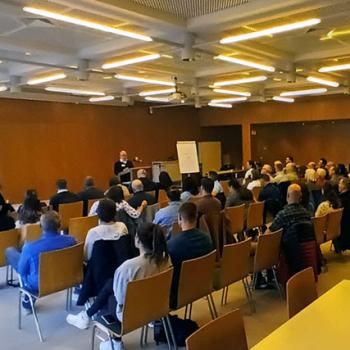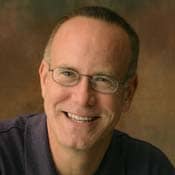Editor's Note: This is the sixth installment of Dr. Roberts' "Master Class for Pastors." The first parts are the Introduction, "Who Are Your Partners?" "The Impact of Thanksgiving," "How Do You Talk About Your Church?" and "Understanding Your Cultural Context."
In my last contribution to The Pastors Workshop, I examined a passage in 1 Thessalonians 2 where the Apostle Paul and his colleagues demonstrate an informed understanding of the cultural context in which they planted and shepherded the church in Thessalonica. In particular, they were aware that people would naturally associate them with the popular philosophers of the day, some of whom had honorable intentions, while others made a show of philosophy in order to advance their own position and financial well-being.
The example of Paul & Co. makes me wonder: What roles and positions in our cultural setting might be projected onto pastors? If people learn that you're a clergyperson, what assumptions might they have about you and your ministry? What might folks in your church and community expect of you as a pastor because they associate you with people who serve in roles like yours?
Ideal Pastor
Perhaps the most obvious stereotype by which we are measured is the ideal pastor, the omniscient, omnipresent, omniloving clergyperson who lives only in fiction and in nostalgia. I am thinking, for example, of Father Tim in Jan Karon's Mitford Years Series. He is the sort of compassionate, always-present pastor that everyone wants to have, and that never can be found outside of Karon's magical Mitford.
Doctor
Many people think of churches as hospitals and pastors as doctors. Thus, they expect you to help them get better when they're not feeling well spiritually. They may even be willing to "pay" for your services by chipping in financially. But they have no expectation that your job involves helping them to get into the "healing business" as lay ministers of Christ. The want expertise, delivered effectively, with an immediate result, but no ongoing obligation or relationship.
Psychologist
In today's hyper-therapeutic culture, many people expect pastors to be therapists, albeit a less-expensive version. They want to tell you their troubles so that you can dig into their psyches and help them feel or function better. Many seminaries and denominations seem to have bought into this model, to an extent, by imbuing pastoral training with a substantial chunk of therapeutic learning experiences. For example, in my denomination, pastoral trainees are required to complete Clinical Pastoral Education, usually as hospital chaplains. They are not required to complete an internship in a business so as to learn how to be effective leaders or managers of the church.
Teacher
Whereas some people expect you to be their therapist, others want you to be their teacher. They want you to instruct them in spiritual truths and to connect these truths to their daily lives. As our culture drifts farther and farther from any notion of truth beyond subjective feelings, fewer people want their pastor to be their teacher. But, at the same time, a strong segment of the population has an even greater desire to be taught the truth from pastors. This is true even and especially among the young. If you pay attention to the some the pastors who are most popular among Gen-Xes and Gen-Y/Millennials, you'll find that they tend to be teachers, often in quite an authoritative mode. Whereas my generation (Boomers) want theologically-lite and practically-heavy sermons, the next-gen folk, if they're not sold out to postmodernism, want more theological substance.
Friend
Many people look upon pastors as professional friends. Your role is to be nice to people, to hang out with them, to laugh with them, and to be there with them in difficult times. One of the most unmanageable parts of pastoring Irvine Presbyterian Church was dealing with all the people who wanted me to come over for dinner or for their daughter's birthday party. I liked doing this, but could never fulfill the hopes of the 1,000+ people who called Irvine Pres home. I ended up disappointing a multitude because I wasn't a good enough friend.





